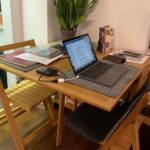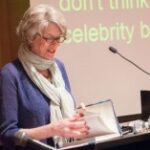Betty Hauck writes in hearatboston@googlegroups.com:
A few items of interest:
ADA Anniversary
Jonathan Taylor, head of New York City HLAA chapter, sent this link to a YouTube video of their Sept. 1 meeting celebrating the anniversary of the landmark legislation establishing the ADA, the Americans with Disabilities Act.
Jonathan writes: “The September 1 chapter meeting was a celebration of the ADA, with introductory remarks by long-time chapter board member, Anne Pope, about the history of the ADA and HLAA’s role in its enactment. We were honored to have JoAnne Simon as our main speaker. Ms. Simon is a member of the NY State Assembly for the 52nd District in Brooklyn and a disability rights attorney. She is a graduate of Iona College, holds a Master’s degree in Education of the Deaf from Gallaudet University, and a law degree from Fordham University School of Law, which she earned while working full time.”
You can view a captioned recording at the You Tube link https://youtu.be/vdWUMPU4yUg
The Best Diet for Your Ears
There is a recent article in Consumer Reports about how diet is connected to hearing health. Several recent studies show that a diet that is good for your heart, like the Mediterranean Diet which emphasizes plant-based food, is also good for your hearing. Here is an excerpt from the article:
“I tell all my patients with hearing loss to follow a heart-healthy diet,” Dr. Woodson says. “If it’s good for your heart, it’s going to be good for your ears, as well.”
Heart-healthy eating patterns, including the three approaches used in Curhan’s studies, are mostly centered on lots of high-quality plant-based foods and low amounts of animal-based foods, refined grains, added sugars, and unhealthy fats. To make it easy, Curhan recommends at each meal filling half your plate with fruits and veggies (but limiting starchy ones, like potatoes). The other half should be made up of whole grains and plant-based protein, such as tofu, lentils, or nuts most days, with fish and modest amounts of lean meat, and poultry less often. Unsaturated oils such as olive or vegetable oils can also be used.”
HLAA Boston Chapter Meeting, September 26, 2020
Don’t forget the first Boston Chapter meeting of the season, Saturday the 26th, at 4 PM via Google Meet, which is captioned.
A chance to meet and greet and find out what’s new with the Boston Chapter. You will be receiving a link soon via Email.
Technical questions about using Google Meet? Andrea Kaneb is happy to help: ajkaneb@gmail.com.
Be well, stay safe.


 This is from Jonathan Taylor, Vice President of the NYC HLAA Chapter. An abbreviated version
This is from Jonathan Taylor, Vice President of the NYC HLAA Chapter. An abbreviated version  This month, the webmaster of HLAA Boston Chapter’s website will step aside for a new volunteer administrator.
This month, the webmaster of HLAA Boston Chapter’s website will step aside for a new volunteer administrator.